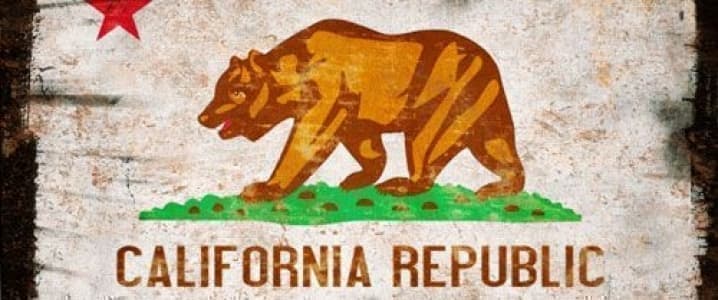California Governor Gavin Newsom just dealt a blow to the oil industry, placing a temporary moratorium on new fracking permits in the state until scientists complete an independent review of the practice.
The action also included a temporary prohibition on new permits for steam-injected oil drilling, which comes in the wake of a major oil spill at a Chevron-operated site in Kern County earlier this year. The site leaked more than 1.3 million gallons of oil and water.
Gov. Newsom also linked the actions to a broader shift away from oil in general. “These are necessary steps to strengthen oversight of oil and gas extraction as we phase out our dependence on fossil fuels and focus on clean energy sources,” Newsom said in a statement on Tuesday. “This transition cannot happen overnight; it must advance in a deliberate way to protect people, our environment, and our economy.”
The moratorium on steam-injected drilling will remain in place until the Lawrence Livermore National Laboratory and Sandia National Laboratory study the process. “These oil leaks cannot be the cost of doing business,” California Natural Resources Secretary Wade Crowfoot said, according to the AP. “There needs to be a clear trajectory to eliminate them. Not reduce them in number, but fully eliminate them.”
Importantly, in October, Newsom singed a law that renames the state agency that oversees the industry while also tweaking its mission. The Division of Oil, Gas, and Geothermal Resources will be known as the Geologic Energy Management Division in January, and its mission will include a focus on protecting public health, safety and the environment.
Gov. Newsom came under pressure a few months ago when the Desert Sun reported that fracking permits had doubled in the first half of 2019, apparently without Newsom’s knowledge. The revelation led the governor to fire the oil regulator.
Interestingly, however, Gov. Newsom said at the time that he did not think that he had the authority to place a moratorium on fracking, something that environmental groups have long demanded. The latest actions only affect permits for new projects. According to the AP, there are 263 pending permits on the desk of regulators, but none of them have been approved since July when the top official was removed. Related: The Truth About The World’s Deepest Oil Well
Reuters pointed out that shares in several California-focused oil companies tumbled following the announcement. Shares of Berry Petroleum are down by more than 35 percent since the start of the week. California Resources lost more than 25 percent on Tuesday, but was rebounding in midday trading on Wednesday.
The industry warned about the negative fallout from the new limits. “The bulk of Kern County’s new oil production will be severely impacted by this policy, as well as future capital investment by the producers,” State Senator Shannon Grove said in a statement.
California has been a major oil producer for more than a century. The 2007 movie There Will Be Blood chronicles the southern California oil boom in the late 19th Century.
The state remains a significant oil producer, even as output has been in gradual decline for several decades. In August 2019, California produced 439,000 barrels per day, down from a peak of around 1.1 million barrels per day in the late 1980s. Output is expected to continue to decline, although the industry remains powerful in the state.
For years, environmental groups pressured former Governor Jerry Brown to ban fracking. He resisted, and instead focused his environmental efforts on other sectors, such as setting aggressive targets for carbon-free electricity. He was reluctant to take on the oil industry in such a direct way. Related: The Race To Develop A 50 Billion Barrel Oilfield
Gov. Newsom appeared to be following a similar track, setting ambitious climate change targets, fighting for stricter fuel economy standards (despite the watering-down of such standards at the federal level) and other measures to promote renewable energy. For much of his first year in office, he avoided taking on the oil industry as well.
But this week’s measures to put a temporary moratorium on fracking and steam-injected drilling is a new chapter, stepping up confrontation with oil drillers.
ADVERTISEMENT
A few weeks ago, Chevron’s boss Mike Wirth made headlines when he criticized California and praised Texas. “The policies in California have become pretty restrictive on a lot of business fronts, not just the environment,” Wirth said. “I don’t know there’s a better place in the world for us to do business than” Texas and the Gulf Coast, he added.
The California-based company hasn’t decamped for the Lone Star State just yet, but it may just be a matter of time.
By Nick Cunningham of Oilprice.com
More Top Reads From Oilprice.com:
- This Texas Oil Town Sees Strongest Salary Growth In US
- Vigilante Offers $100,000 Bounty To Hack Oil & Gas Companies
- Forget OPEC: China Now Moves The Oil Markets


















